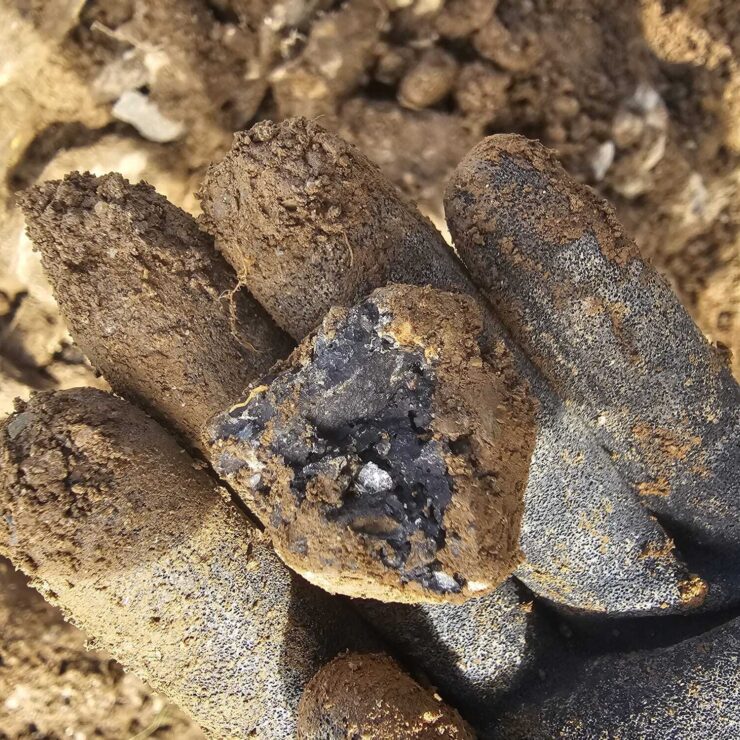From October 2025, the rules change - and we make sure you’re ready.
Street Works UK’s new Material Classification Protocol will replace RPS298 & RPS299, setting a higher bar for how excavation waste from utility works is assessed, managed, and reported. This shift isn’t just about ticking boxes - it’s about protecting your projects, your reputation, and your budget.
What the New Protocol Means for You
- Mandatory risk assessments for every excavation, desk-based and on-site, to verify that no potential signs of hazardous materials - such as coal tar, petroleum hydrocarbons, or asbestos - are present before removal.
- Waste Management – from excavation to disposal, all wastes covered by the protocol must be segregated (e.g. hazardous materials from non-hazardous, asphalt from soils etc.) and managed according to their classification.
- Ongoing sampling & testing – 1% of total excavation waste must be tested at a UKAS-accredited laboratory to prove your risk assessments are accurate. This can increase up to 3% if accuracy drops.
- Quarterly reporting
- All sampling results must be uploaded to the central register in Street Manager and recorded in your SWUK sampling results log.
- Monitoring by the Environment Agency to check accuracy between risk assessments and UKAS lab testing. If less than 70% accuracy for two consecutive quarters, organisations will be suspended from using the protocol.
Why This Matters
Failure to comply with the new Street Works UK protocol can lead to higher disposal costs, reputational damage, project delays and regulatory penalties.
We’re here to help make compliance easy.
How We Help
- End-to-end compliance support – from risk assessment to final disposal.
- Rapid response and testing turnaround times
- UKAS-accredited testing and reporting
- Accurate waste classification by our own experienced waste assessors and chemists.
- Efficient sampling strategies to meet percentage testing targets without unnecessary costs.
- Clear, accessible reporting tailored for both regulators and your internal teams.
- Ongoing compliance monitoring to keep you well above the 70% threshold and ensure your operations stay on track all year round.
- Managing hazardous waste such as asbestos, coal tar and hydrocarbons.
